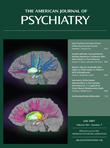Possession
In July, my first month as a psychiatric resident at Hotel Dieu Hospital, I am called to the emergency department Sunday at 9 p.m. to see a gaunt woman pacing the crowded waiting room. Her children, a boy, 6, and a girl, 4, sit in obedient stillness. The casualty officer notes, “Patient medically stable but has religious concerns. Refer to Psychiatry.” I introduce myself and lead the woman to an examining room with a female attendant. Two sunken gray eyes pierce mine with a chilling stare. “What is the matter?” I ask.
The woman is silent. Her lips quiver; her eyes flee mine. I read her chart, her scant history. Her daughter, sitting outside the examining room, asks to join us. Moments later, her son enters. Five of us crowd the tiny room. In the children’s eyes I see confusion. The woman adjusts the crucifix around her neck; her fingers tremble.
“What is wrong?” I ask.
“Mama will not eat. She’s—,” the boy begins, but the mother puts a finger to her lips.
“I want to see Sister Marie,” she demands.
Sister Marie oversees the emergency department, a petite woman with soft brown eyes in a white habit. I know Sister Marie from rounds yet hesitate to call her. A nurse assures me that Hotel Dieu Hospital, founded by a French order, considers it a duty to respond to religious requests.
“I must speak to Sister Marie,” the woman pleads. I dial the sisters’ residence. I have no clear history or mental status; the woman refuses to talk. She seems more unsettled. On the telephone, Sister Marie agrees to come. Soon we are six in the tiny room.
“Yes, my dear,” Sister Marie says. “What troubles you?” The woman’s gray eyes turn to slits. I am unprepared for what comes next.
“The Devil is in me. He is in the room,” the woman hisses. “I am possessed.”
The female attendant crosses herself. Sister Marie’s mouth tenses; she struggles to ask questions. I shudder. The interview goes nowhere. The patient draws away, sullen.
“You cannot fight evil,” she glares at us. “You are afraid. I need a priest.”
“Please,” I say. “I have medication—” The woman shrugs.
Sister Marie excuses herself. Outside the room we talk. “I have never seen a possession,” Sister Marie admits. “If you go in alone, she may listen.” I return, anxious for her children witnessing her distress, but she stamps her foot and hisses. It is no use.
“She does not trust me,” I say. “Shall I call the priest?”
The one case of possession I have seen, “The Exorcist,” plagues my sleep with macabre images, the most terrifying film I have ever seen. I imagine evil in the room. Is this possession? Is it psychosis? Why am I fearful?
“Let us both go back,” Sister Marie urges. We return but the woman is hypervigilant and more mistrustful. When I ask about suicidal or homicidal thoughts, she shrugs. She refuses medication. Who am I to exorcise demons? I am a novice resident, not a priest. “Sister,” I say as we exit the room. “Please, will you call the priest?”
Sister Marie phones Father Raymond. Twenty minutes later, I feel relief as the Father arrives. He is solemn, olive-skinned, thin, very tall, not much older than me, with somber eyes, dressed in robes the color of night. From the waiting room window, I see the cathedral and the large lit “H” of “Hospital,” beacons of hope to a suffering world.
“This patient says she is possessed by the Devil,” I say. “She may be psychotic; she insists on seeing a priest.” I lead him to the cubicle. It is 10:15 p.m. Sister Marie whispers, “I worry for her children. They try to protect her; she is struggling, clinging to them.” I nod, helpless and inept, hoping Father Raymond succeeds where I have failed.
By 11:00 p.m. the Father exits. “She will not say what happened. The doctor is not to be trusted. Sister Marie is not high enough. I am young. I am not high enough either.”
“Not high enough?” I stare at his size. “Who is high enough? Who will she see?”
“No one,” the priest says, “but the monsignor. He is old and ill. I believe it is a matter for a psychiatrist.” We debate in the corridor. Should I call the monsignor or my staff psychiatrist? From the open door I hear her whimpering to her daughter. Her son has left for the washroom. I call a nurse to watch the boy. By midnight she grows agitated.
I deliver the bad news to her. “The monsignor cannot see you.”
“Bring my son!” the woman clutches her daughter. “I must see the monsignor.”
By 12:30 a.m. matters deteriorate. She orders the attendant out. She screams for her son. I refuse. Her eyes are fiery. I am desperate. I phone Dr. Noiret. A half hour later, my staff psychiatrist sits in the emergency department. “You reasoned. You respected her religious issues. Do you have any choice left? She is agitated; she appears to suffer persecutory delusions and is noncompliant. We must restrain, tranquilize, and hospitalize her.”
How certain he acts, with a calm I do not possess. He has orderlies, nurses positioned, and intramuscular medications prepared; he informs the patient what must be done. He moves deftly, parting patient and daughter without much scuffle. Days later the patient stabilizes on the ward. Dr. Noiret discusses brief psychotic reactions, hysterical and cultural psychoses, schizophrenic states, and how we all struggle with questions of evil, but I remain unsettled.
“Without such cases, how does one learn?” Dr. Noiret, a crosscultural psychiatrist, says. “The unknown terrifies us all.”



